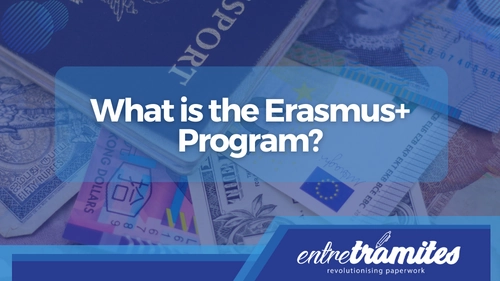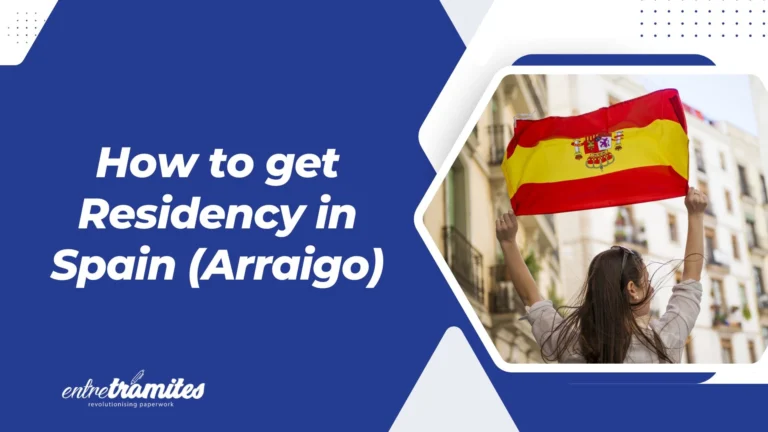The Erasmus+ Program is a European student mobility program (a type of academic exchange) that allows students from higher education institutions (universities and professional training academies) to continue their education in 34 eligible countries: 28 Member States of the European Union, 4 countries of the European Free Trade Association (Iceland, Norway, Switzerland, and Liechtenstein), Turkey and the former Yugoslav Republic of Macedonia.
This program has a scholarship, the amount of which depends on the host country, it also covers areas such as student internships in companies and the mobility of teaching staff.
Many students, when they think of living an international experience while finishing their studies, consider the Erasmus+ Program as their first option and they are not wrong because it does guarantee great educational, personal and professional moments that offer financial and employment support.
According to the Erasmus Impact Study report, 97% of the students who partake in this program enhance their language skills, 84% improve their ability to solve problems and 95% learn to interact much better with people from other cultures.
Then how can you apply to the Erasmus+ Program? We will tell you all the details, so keep reading! And if you have any questions, Entre Trámites can solve them and support you in all your immigration procedures. Schedule a free consultation!
How does the Erasmus+ Program work?
This program allows students to continue their studies at a foreign university. It came into force on January 1st, 2014, although it was founded in 1987. It is part of three strategies: Europe 2020, Education and Training 2020, and Rethinking Education.
This plan is addressed to citizens or permanent residents of a participating country, people who have a temporary residence permit (in force during the entire exchange), or who have refugee or stateless status in one of the participating countries. Students can go on Erasmus+ from the first year of university.
Depending on the university to which they apply and whether or not the student requests an internship abroad, the duration of the Erasmus+ program will vary between a period of 3 to 12 months.
Requirements to go on an Erasmus+ Program
The general requirements that students must meet to access an Erasmus+ Program are:
- Be citizens of the European Union.
- They must be studying for an official degree.
- They must have passed a minimum of 60 ECTS (or academic credits) of their academic training.
- They must accredit a B2 language level of the Common European Framework of Reference (CEFR), through an official degree or by passing a test. However, in most universities, the courses are taught in the native language, although the destination university usually offers language classes.
On the other hand, they must also meet the criteria requested by the university to which they apply. It is important that when reviewing curricula and universities, students also take into account the conditions of each academic institution before applying.
The most chosen destinations by students
According to the European Commission, Spain is the country that receives the most Erasmus+ students. Between 2019 – 2020 they received 48,203 students in the Higher Education sector, far ahead of France (30,045), Germany (29,549), Italy (27,239), and the United Kingdom (22,555).
Spain is also in third place among countries that send more students abroad with 40,949, just below Germany (44,682) and France (41,928).
Other countries that receive a good number of students are:
- Italy
- United Kingdom
- Turkey
- Netherlands
- Poland
- Portugal
- Belgium
- Sweden
Benefits of going on an Erasmus+ Program
As we already mentioned above, there are many benefits and advantages to being a part of an Erasmus+ Program. However, let us highlight the most important ones in detail:
- Learning a new language: Learning a new language: Communicating in a foreign language from a country other than your own provides a great immersion. You will probably see classes, interact with other people and speak this language on a daily basis so, in the end, you will easily get along in that new language.
- Get to know other cultures: You will not only get to know your host country’s culture but also of other people of different nationalities who are studying at that same university as you, and who have come from other parts of the world. This will allow you to grow as a person and open your mind to other ways of doing things.
- Improve your CV: Studying abroad is a big plus in any academic file, it adds value to your CV due to the languages you will learn and the experience you will get from living abroad.
- Access to various opportunities for personal and professional development: you will be able to participate in an Erasmus study program, an internship in companies, or an Erasmus volunteer program, with the same advantages as if you were going to study or do an internship.
- You can do as many Erasmus programs as you want: You can apply to participate in as many Erasmus programs as you want, as long as you meet the requirements and that at least twelve months have elapsed since the end of the previous program.
- There is no age limit: you can apply for an Erasmus scholarship at any time, regardless of how old you are, as long as you meet the requirements demanded by the different academic institutions.
More Erasmus+ Programs
Finally, you can also participate in other modalities of the Erasmus+ Program within the European Union, such as:
- Erasmus MUNDUS Master and Doctorate Program
- Erasmus for Young Entrepreneurs
- Comenius for nursery, primary and secondary schools
- Leonardo da Vinci, for projects in the field of vocational education and training
- Grundtvig, intended for adult education
Any doubts?
We hope that this information has been very helpful for you to make a decision about exchange or international student mobility.
Likewise, if you need help with this process or others related to immigration, count on Entre Trámites to help you. Find out about our immigration services, like requesting the extension of stay for studies, and issuance of the TIE or NIE.
Contact us! You can call at 930 185 237, fill out our contact form, schedule your free online consultation or simply text our WhatsApp.





